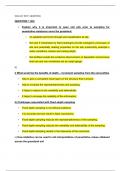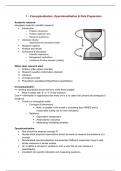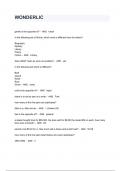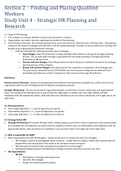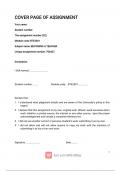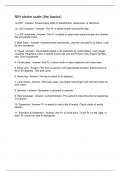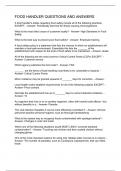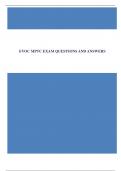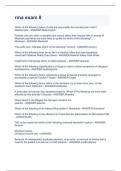THEORY I:
PERSPECTIVES ON HISTORY
1: Introduction...................................................................................................................................2
Memory Studies Perspectives....................................................................................................7
2: Memory and History......................................................................................................................7
3: Memory and Space......................................................................................................................12
Geographical Perspectives......................................................................................................23
5: World & Global History................................................................................................................23
6: Planetary History.........................................................................................................................30
7: Postcolonial Perspectives.............................................................................................................34
Social Science Perspectives.....................................................................................................40
8: Historical Anthropometrics..........................................................................................................40
9: Gender, The Body, Labor..............................................................................................................45
10: Resistance of the Enslaved.........................................................................................................48
Hermeneutic Perspectives.......................................................................................................52
11: Historicism and Hermeneutics – 19th century............................................................................52
12: Objectivity and the Crisis of Historicism.....................................................................................56
13: Narrativism................................................................................................................................62
,1: Introduction
Which concepts, theories, and approaches have historians deployed in historical
scholarship? Our perspective on historical events and methodological orientation matter for
how we view/make sense of history and use historical sources. This reflection has existed
since the professionalization of history in the 19th century. How have these ideas of
perspectives on history and different frameworks evolved and what are the implications for
research? Two main processes:
- The borrowing, translation, and appropriation of tools from related academic
disciplines in the humanities and social sciences (and from philosophy)
- The development of original approaches and the methods resulting from historians’
specific reflections and empirical research
Our central task in this course is to develop a sensitivity to the strengths and weaknesses of
both processes, their evolution and adaptations, and their consequences for the results
historians can deliver. A variety of different perspectives leads to different positioning,
different emphases, and different historical debates.
How can we study history?
Can or should history be ‘objective,’ ‘neutral,’ or ‘unbiased’? By presenting historical ‘facts’
we appear to claim that history can be objective, but there is always an editor or writer behind
it, and to what degree are they representative? Some people argue that there is no such thing
as ‘one truth’. The lectures will provide four different approaches to history, they are not
mutually exclusive. This lecture will look at the Russian Revolution from these perspectives:
- Social science
- Memory
- Geographical
- Hermeneutic
Russian Revolution: Social Science Perspective
Social science history is not only social history, it is much larger. Social sciences are
disciplines that have understanding human behavior at the heart, a focus on groups and larger
processes. Often more on the empirical and positivist side, versus more interpretivist
approaches to history.
Two main questions that are at the heart of the interplay between social sciences and history:
- What can we learn from the past about social behavior?
- What can insights from the social sciences teach us about the past?
Russian Revolution fits within a long tradition of social historians identifying ‘agency.’ Social
historians are concerned with the lives of everyday people, how did the oppressed push back?
2
,What ‘drove’ the Russian Revolution? It was a major revolution, but also a new socio-
political order. How did the new order maintain ‘legitimacy’?
A social science attempt is not to look at Lenin or Trotsky and their revolutionary zeal, but
rather at the situation of the population in terms of:
- Income, standard of living, inequality, social mobility
o Were frequent food shortages to blame? Inflation?
- Distribution of power
o Tsarist autocracy to the dumas
- Change over time (industrialization)
o Urbanization
Two revolutions swept over Russia in 1917, but social unrest had been brewing for decades.
From a social scientific point of view, historians often try to decompartmentalize things into
structural and conjunctural factors:
Structural (longer term) Conjunctural (acute, shorter timeframe)
- Political, economic, and social - Industrialization and growing
inequality working class (poor conditions)
- End of serfdom, but persistent land - WWI and low morale
problems - Frequent food shortages
- Role of Tsarist regime and
Orthodox church
The social science approach would also look a lot at rural-urban dichotomies: “islands of
modernity in a sea of rural backwardness” (Dual economy, Sir Arthur Lewis). Tremendous
amount of inequality between the social groups, a very small old political elite, a slightly
larger new political elite, a small group of urban workers, and a very large group of peasants.
Research on the eve of the revolution can be done through various sources:
- Living standard: height, lack of birth control > food shortages caused a poor living
standard
- Income inequality compared to other countries
The new elite promised better living standards but in reality, it led to a one-party dictatorship
that was much more violent, bloody, and vicious than what it had replaced.
Russian Revolution: Memory perspectives, remembering the Russian Revolution
History seen from the point of view of memory, not how history was lived or experienced,
but history as it was remembered after the fact.
The 2017 commemoration of the Russian Revolution gives us an opportunity to see how this
event and memories of it are remembered. A big change has occurred over time, memories
constantly evolve.
3
, During the Cold War there were two opposite memories of the Revolution:
- Soviet memory: positive, the ‘Great Socialist October Revolution.’
o The revolution led to the foundation of the Soviet Union. The Bolshevik party
overthrew the bourgeoisie with the full support of the working classes. This
support is important because it gives legitimacy to the Revolution but also the
Soviet Union as its successor. Seen as inevitable and fated because it was just.
The opponents of Lenin were erased from history, they were inconvenient.
Celebration of the anniversary of the revolution, commemoration through
statues, street names, etc. Also commemorated the present regime: heir to the
Russian Revolution.
- Western memory: negative
o Not a popular uprising, but a coup d’etat. Western historians emphasized the
violation and bloodiness, and the lack of popular support to try to delegitimize
the revolution and the Soviet Union.
Popular support as a key element for the legitimacy/delegitimacy of the Soviet Union
Ideological conflicts of the Cold War were reflected in opposing memories of the revolution.
On both sides political leaders were trying to construct a memory that could be politically
useful. The story of the revolution was ‘sacred’ in the Soviet Union, it was the foundation
myth. This idea changed in 1991 with the collapse of the Soviet Union in 1991, it was the end
of the myth of a glorious revolution. The collapse brought a crisis in Russian memory:
revolution lost its place, it became a divisive and controversial memory. This reflected
broader devisions withing post-Soviet Russian society. The memory of the revolution was no
longer useful, Putin canceled the annual holiday of the revolution in 2004.
In 2017 Russian leaders weren’t sure how to commemorate the event. It was tricky because
the memory of the revolution was both good and bad.
- Good: it was a global event that showed the importance of Russia as a world leader
- Bad: the revolution was revolutionary, Putin is conservative and anxious of people
revolting. Some of his new allies were also among the victims of the revolution
(Orthodox church, Tsarists) and Putin would have risked angering them. The 2014
revolution in Kiev and the collapse of the pro-Russian government in Ukraine was
also a reason not to celebrate the idea of revolution.
Condemning the revolution meant risking offending some groups, and celebrating it meant
risking offending other groups within society. Putin decided not to remember the revolution.
it was downgraded to an overthrow. Communist sympathizers came out to march.
History as remembered, rather than history recorded at the time. Memories are flexible and
shift over time. Political leaders will keep a memory if it is useful, but will also abandon or
rework it when it is no longer useful. Over the last century, the Russian Revolution went from
a national triumph to a national embarrassment.
Russian Revolution: Geographical Perspectives, The Global History of 1917
4
PERSPECTIVES ON HISTORY
1: Introduction...................................................................................................................................2
Memory Studies Perspectives....................................................................................................7
2: Memory and History......................................................................................................................7
3: Memory and Space......................................................................................................................12
Geographical Perspectives......................................................................................................23
5: World & Global History................................................................................................................23
6: Planetary History.........................................................................................................................30
7: Postcolonial Perspectives.............................................................................................................34
Social Science Perspectives.....................................................................................................40
8: Historical Anthropometrics..........................................................................................................40
9: Gender, The Body, Labor..............................................................................................................45
10: Resistance of the Enslaved.........................................................................................................48
Hermeneutic Perspectives.......................................................................................................52
11: Historicism and Hermeneutics – 19th century............................................................................52
12: Objectivity and the Crisis of Historicism.....................................................................................56
13: Narrativism................................................................................................................................62
,1: Introduction
Which concepts, theories, and approaches have historians deployed in historical
scholarship? Our perspective on historical events and methodological orientation matter for
how we view/make sense of history and use historical sources. This reflection has existed
since the professionalization of history in the 19th century. How have these ideas of
perspectives on history and different frameworks evolved and what are the implications for
research? Two main processes:
- The borrowing, translation, and appropriation of tools from related academic
disciplines in the humanities and social sciences (and from philosophy)
- The development of original approaches and the methods resulting from historians’
specific reflections and empirical research
Our central task in this course is to develop a sensitivity to the strengths and weaknesses of
both processes, their evolution and adaptations, and their consequences for the results
historians can deliver. A variety of different perspectives leads to different positioning,
different emphases, and different historical debates.
How can we study history?
Can or should history be ‘objective,’ ‘neutral,’ or ‘unbiased’? By presenting historical ‘facts’
we appear to claim that history can be objective, but there is always an editor or writer behind
it, and to what degree are they representative? Some people argue that there is no such thing
as ‘one truth’. The lectures will provide four different approaches to history, they are not
mutually exclusive. This lecture will look at the Russian Revolution from these perspectives:
- Social science
- Memory
- Geographical
- Hermeneutic
Russian Revolution: Social Science Perspective
Social science history is not only social history, it is much larger. Social sciences are
disciplines that have understanding human behavior at the heart, a focus on groups and larger
processes. Often more on the empirical and positivist side, versus more interpretivist
approaches to history.
Two main questions that are at the heart of the interplay between social sciences and history:
- What can we learn from the past about social behavior?
- What can insights from the social sciences teach us about the past?
Russian Revolution fits within a long tradition of social historians identifying ‘agency.’ Social
historians are concerned with the lives of everyday people, how did the oppressed push back?
2
,What ‘drove’ the Russian Revolution? It was a major revolution, but also a new socio-
political order. How did the new order maintain ‘legitimacy’?
A social science attempt is not to look at Lenin or Trotsky and their revolutionary zeal, but
rather at the situation of the population in terms of:
- Income, standard of living, inequality, social mobility
o Were frequent food shortages to blame? Inflation?
- Distribution of power
o Tsarist autocracy to the dumas
- Change over time (industrialization)
o Urbanization
Two revolutions swept over Russia in 1917, but social unrest had been brewing for decades.
From a social scientific point of view, historians often try to decompartmentalize things into
structural and conjunctural factors:
Structural (longer term) Conjunctural (acute, shorter timeframe)
- Political, economic, and social - Industrialization and growing
inequality working class (poor conditions)
- End of serfdom, but persistent land - WWI and low morale
problems - Frequent food shortages
- Role of Tsarist regime and
Orthodox church
The social science approach would also look a lot at rural-urban dichotomies: “islands of
modernity in a sea of rural backwardness” (Dual economy, Sir Arthur Lewis). Tremendous
amount of inequality between the social groups, a very small old political elite, a slightly
larger new political elite, a small group of urban workers, and a very large group of peasants.
Research on the eve of the revolution can be done through various sources:
- Living standard: height, lack of birth control > food shortages caused a poor living
standard
- Income inequality compared to other countries
The new elite promised better living standards but in reality, it led to a one-party dictatorship
that was much more violent, bloody, and vicious than what it had replaced.
Russian Revolution: Memory perspectives, remembering the Russian Revolution
History seen from the point of view of memory, not how history was lived or experienced,
but history as it was remembered after the fact.
The 2017 commemoration of the Russian Revolution gives us an opportunity to see how this
event and memories of it are remembered. A big change has occurred over time, memories
constantly evolve.
3
, During the Cold War there were two opposite memories of the Revolution:
- Soviet memory: positive, the ‘Great Socialist October Revolution.’
o The revolution led to the foundation of the Soviet Union. The Bolshevik party
overthrew the bourgeoisie with the full support of the working classes. This
support is important because it gives legitimacy to the Revolution but also the
Soviet Union as its successor. Seen as inevitable and fated because it was just.
The opponents of Lenin were erased from history, they were inconvenient.
Celebration of the anniversary of the revolution, commemoration through
statues, street names, etc. Also commemorated the present regime: heir to the
Russian Revolution.
- Western memory: negative
o Not a popular uprising, but a coup d’etat. Western historians emphasized the
violation and bloodiness, and the lack of popular support to try to delegitimize
the revolution and the Soviet Union.
Popular support as a key element for the legitimacy/delegitimacy of the Soviet Union
Ideological conflicts of the Cold War were reflected in opposing memories of the revolution.
On both sides political leaders were trying to construct a memory that could be politically
useful. The story of the revolution was ‘sacred’ in the Soviet Union, it was the foundation
myth. This idea changed in 1991 with the collapse of the Soviet Union in 1991, it was the end
of the myth of a glorious revolution. The collapse brought a crisis in Russian memory:
revolution lost its place, it became a divisive and controversial memory. This reflected
broader devisions withing post-Soviet Russian society. The memory of the revolution was no
longer useful, Putin canceled the annual holiday of the revolution in 2004.
In 2017 Russian leaders weren’t sure how to commemorate the event. It was tricky because
the memory of the revolution was both good and bad.
- Good: it was a global event that showed the importance of Russia as a world leader
- Bad: the revolution was revolutionary, Putin is conservative and anxious of people
revolting. Some of his new allies were also among the victims of the revolution
(Orthodox church, Tsarists) and Putin would have risked angering them. The 2014
revolution in Kiev and the collapse of the pro-Russian government in Ukraine was
also a reason not to celebrate the idea of revolution.
Condemning the revolution meant risking offending some groups, and celebrating it meant
risking offending other groups within society. Putin decided not to remember the revolution.
it was downgraded to an overthrow. Communist sympathizers came out to march.
History as remembered, rather than history recorded at the time. Memories are flexible and
shift over time. Political leaders will keep a memory if it is useful, but will also abandon or
rework it when it is no longer useful. Over the last century, the Russian Revolution went from
a national triumph to a national embarrassment.
Russian Revolution: Geographical Perspectives, The Global History of 1917
4

